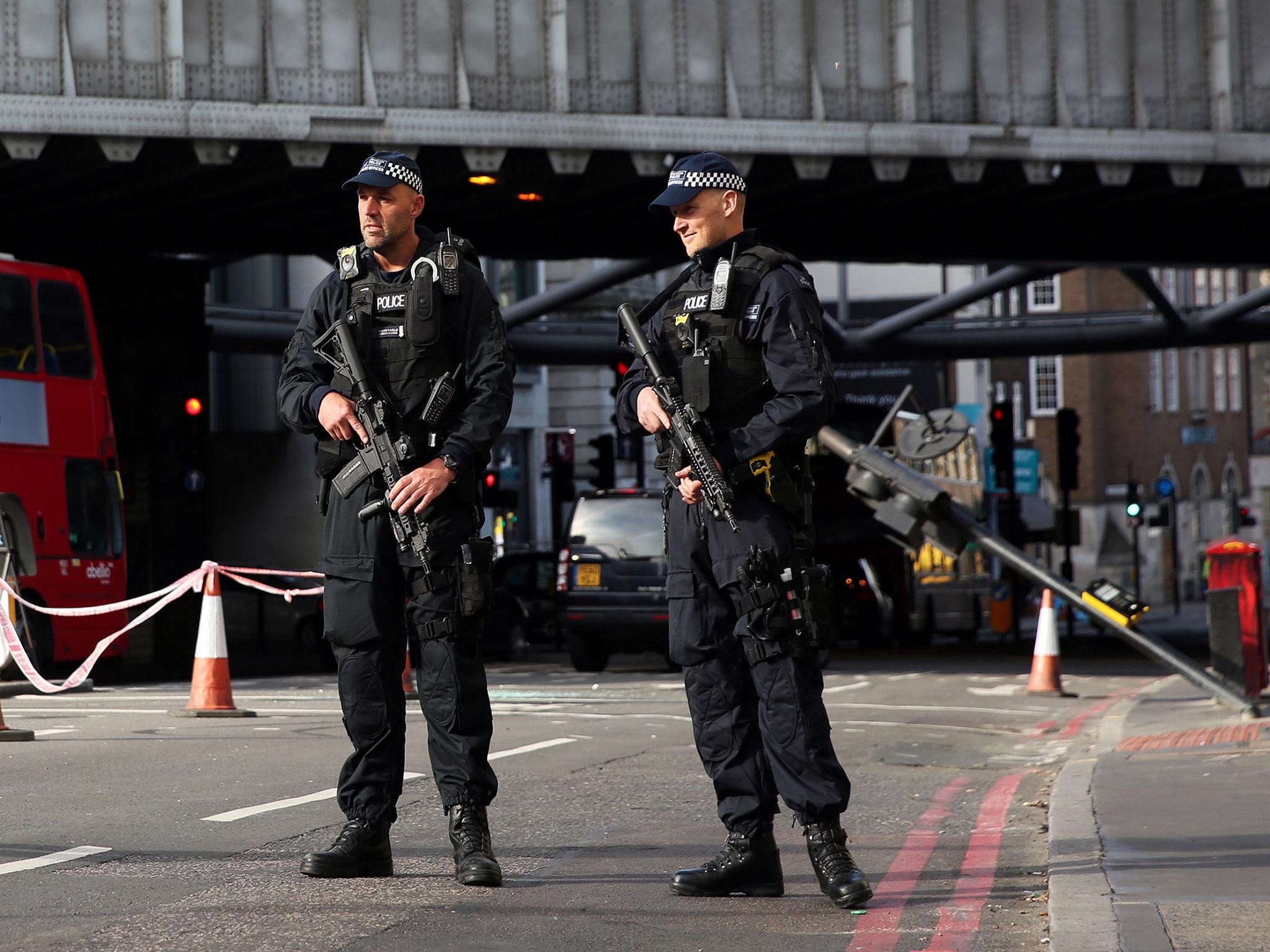Fatal police shootings hit 12-year high in England and Wales, reveals IPCC report
Six fatal police shootings recorded in year to March 2017, marking highest figure on record since IPCC began collecting statistics in 2005

Fatal police shootings in England and Wales have hit a 12-year high, according to figures released by the Independent Police Complaints Commission (IPCC).
There were six fatal police shootings in the 12 months to March 2017, making it the highest annual figure since the IPCC began recorded in 2004/05 and marking a two-fold rise on the previous year.
Three of the incidents are subject to ongoing independent investigations and three are complete. One — the police shooting of Westminster attacker Khalid Masood — was terror-related.
The circumstances of the other five fatal police shootings included a 24-year-old man in Northumbria shot by police after asking him to put down a handgun and an Asian man, 28, being shot three times by armed West Yorkshire Police officers during a planned police operation.
All six casualties were men and were between the ages of 24 and 48.
Commenting on the figures, Dame Anne Owers, Chair of the IPCC, said: “While the number of fatal police shootings has risen this year, this is in the context of many thousands of authorised firearms operations - 14,700 in 2015/16.
"The deaths happened across six forces, and one was terrorism-related. It is important that each incident is thoroughly and independently investigated, to provide public reassurance.
"Investigations into three of the 2016/17 incidents are complete and, as in the great majority of firearms investigations, we have found no indication of misconduct by any firearms officer."
Cody Lachey, 33 from Manchester, who was released from prison five months ago and has previously been involved in gang crime, said he believed the rise in fatal police shootings was due to the cuts to policing, which he claimed were emboldening criminals on the streets.
Speaking to The Independent, Mr Lachey said: “As we’ve seen in last few weeks, acid attacks are on rise and knife crime and gun crime are a real issue. Police numbers have been cut, and this has led to inner-city police stations closing down on a weekly basis.
“Neighbourhoods are going un-policed, the youths of today are running feral. We’ve got organised gangs, post code gangs. The police are a non-visual deterrent. We used to see ‘bobbies on the beat’ pounding on the pavement, but now it’s a thing of yesterday.
“This is creating a green light for criminals to commit crimes across the board. With fewer streets on the streets, the streets are lawless, the gangs and criminals are prospering in that environment, and it looks only to get worse."
The IPCC report also revealed there were 28 deaths related to police pursuits of vehicles — more than in any year since 2005/06 — and 14 deaths in police custody, which is the second lowest figure recorded by the IPCC since it began in 2004.
Deborah Coles, Director of INQUEST, a charity providing support with state related deaths, questioned the effectiveness and safety of police policy, saying: “There has been a shocking rise in fatal police shootings, the highest number since the IPCC began.
"Also a significant and concerning rise in the number of police pursuit related road traffic accidents. IPCC suggest that most these deaths have occurred despite police policy being followed, begging the question of how effective and safe these policies are.”
Speaking about police deaths more generally, Ms Owers said: “It is important, for bereaved families, for the public, and for the police themselves that the IPCC is able to investigate all of these deaths independently and robustly, to ensure accountability and to provide learning that can help prevent future deaths.”
Subscribe to Independent Premium to bookmark this article
Want to bookmark your favourite articles and stories to read or reference later? Start your Independent Premium subscription today.

Join our commenting forum
Join thought-provoking conversations, follow other Independent readers and see their replies